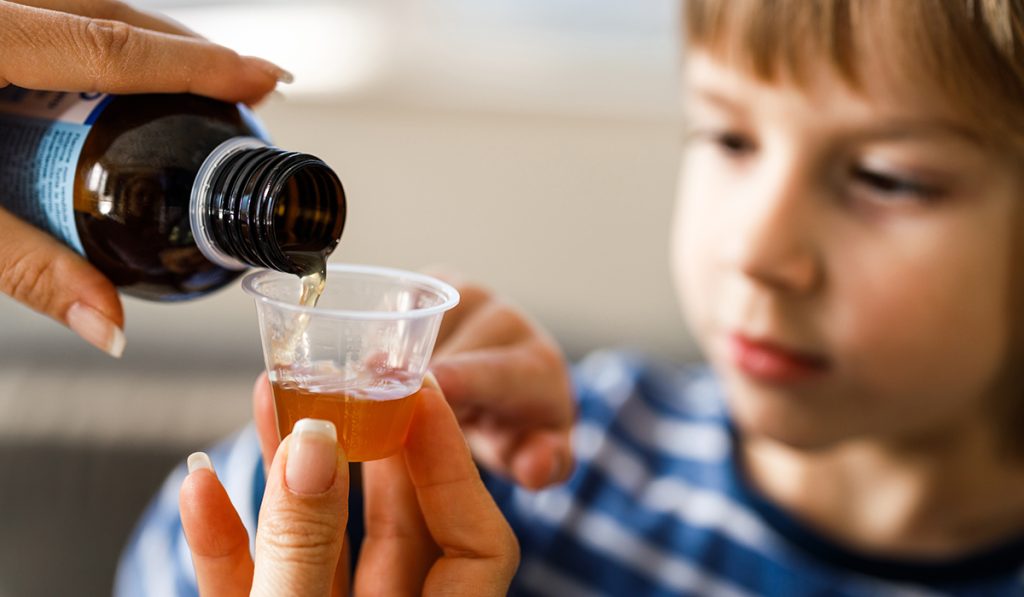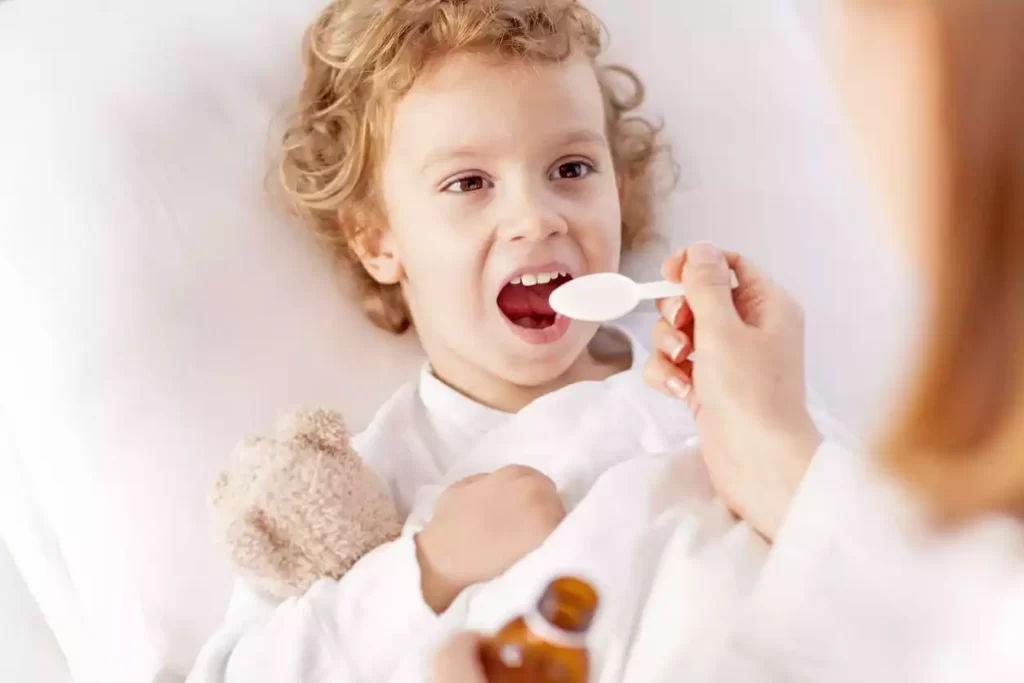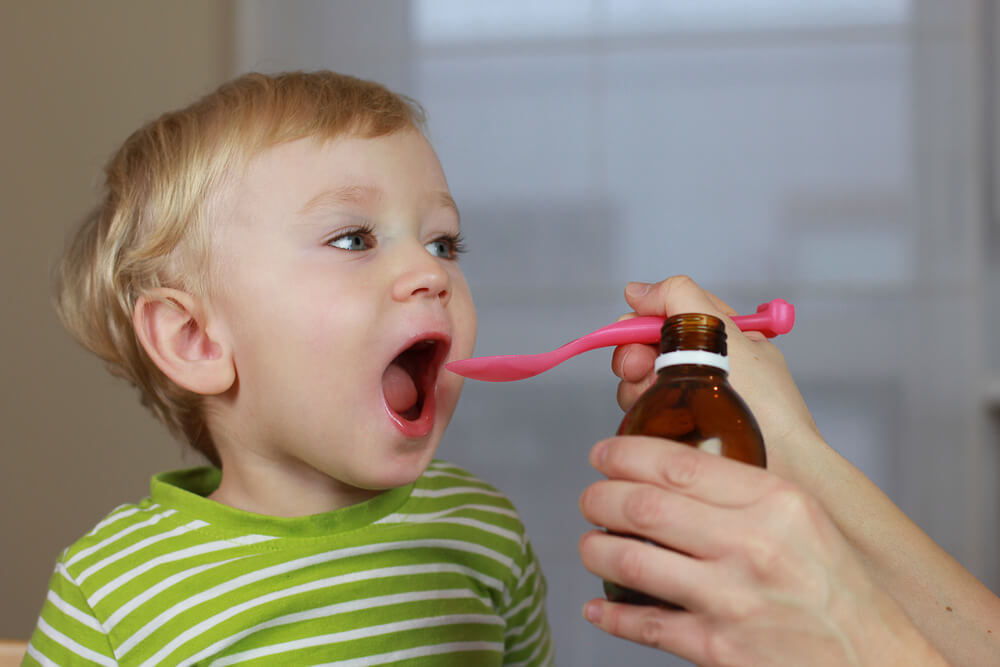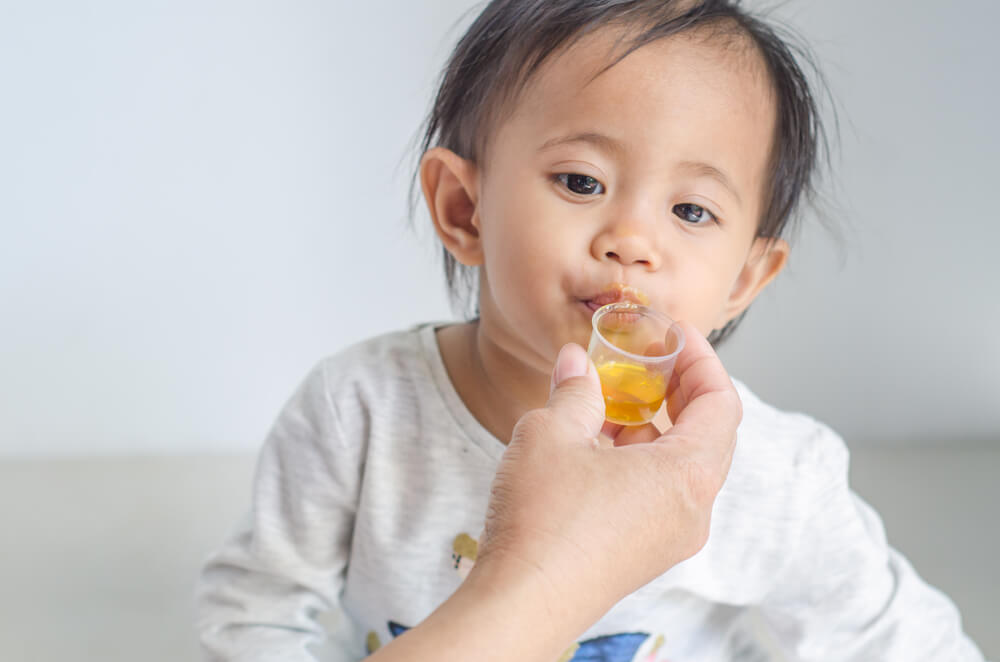I. Introduction

A. The importance of medication for a toddler’s health
Medication plays a crucial role in promoting the health and well-being of toddlers, addressing various illnesses or conditions. Ensuring that toddlers take their medication as prescribed is essential for their recovery and overall health.
B. The challenges faced in getting toddlers to take medicine
Administering medication to toddlers can be a challenging task due to their limited understanding, aversion to taste or texture, and resistance to swallowing pills or liquids. These challenges can make the process stressful and time-consuming for both caregivers and toddlers.
C. Overview of the article’s strategies for successfully administering medicine to toddlers
This article aims to provide strategies and tips to help caregivers successfully administer medication to toddlers. By creating a positive environment, making medication more palatable, and using appropriate methods, caregivers can overcome common challenges and ensure toddlers receive the necessary medication.
II. Creating a Positive Environment
A. Establishing trust and comfort
- Building a strong caregiver-toddler relationship Establishing a trusting and loving relationship with toddlers helps create a positive association with medication administration. This involves spending quality time together, engaging in activities, and providing emotional support.
- Creating a calm and positive atmosphere during medication time Creating a calm and positive environment during medication time can help alleviate anxiety for both caregivers and toddlers. This can be achieved by choosing a quiet and comfortable space, using soothing or familiar sounds, and maintaining a relaxed and patient demeanor.
B. Using child-friendly language and explanations
- Simplifying explanations to their level of understanding Using age-appropriate language and explanations helps toddlers comprehend why they need to take medication. Simplify medical terms, focusing on the benefits of the medication and how it will help them feel better.
- Incorporating fun and engaging language to make it more appealing Making medication administration fun and engaging can increase toddlers’ willingness to participate. Use creative terms or make-believe scenarios that align with their interests, such as taking “magic” or “superhero” medicine to fight off “germ villains.”
III. Making Medication More Palatable
A. Choosing appropriate formulations
- Discussing available options with a healthcare provider Consulting with a healthcare provider about available medication formulations can help identify options that are more palatable for toddlers. They may suggest flavored liquid medications or alternative administration methods (e.g., chewable tablets) that are more appealing.
- Considering flavored or liquid medications for better acceptance Flavored or liquid medications are often better accepted by toddlers due to the ease of swallowing and more palatable taste. Options such as fruit-flavored syrups or dissolvable tablets can enhance the experience for the toddler.
B. Mixing medication with food or drink
- Ensuring compatibility with food or drink choices Mixing medication with a small amount of food or drink that toddlers enjoy can mask the taste and make it more acceptable. Ensure compatibility with the specific medication and consult with a healthcare provider or pharmacist for guidance.
- Gradually increasing the amount of medication mixed over time Gradually increasing the amount of medication mixed with food or drink over time can help toddlers acclimate to the taste and texture. Start with a small amount and gradually increase the dosage until the full amount is taken directly.
IV. Utilizing Distraction Techniques
A. Engaging in interactive activities
- Singing a favorite song or nursery rhyme during medication administration Singing a familiar and beloved song or nursery rhyme can help engage the toddler’s attention and distract them from the medication. This not only makes the process more enjoyable but also helps create positive associations with taking medicine.
- Using toys or games as distractions during the process Involving the toddler’s favorite toys or games can be an effective distraction technique. Let them hold a toy or play a game while taking the medicine, which helps shift their focus away from the medication itself.
B. Using rewards and incentives
- Offering small rewards or praises for cooperation Rewarding the toddler for taking medicine can motivate them to participate willingly. Consider offering a small treat, such as a sticker or a small piece of their favorite food, immediately after they have taken the medication. Additionally, praising their cooperation and bravery can boost their confidence and make the experience more positive.
- Creating a sticker chart or reward system for taking medication consistently Implementing a sticker chart or reward system can provide a visual representation of the toddler’s progress and motivate them to take medication consistently. Each time they successfully take their medicine, reward them with a sticker and praise their accomplishment. After a certain number of stickers, celebrate their achievement with a bigger reward or a special treat.
V. Encouraging Independence and Involvement
A. Involving the toddler in decision-making
- Allowing the toddler to choose the flavor or container of medication Empowering the toddler by giving them a choice in selecting the flavor or container of the medication can help them feel more involved and in control. This gives them a sense of ownership over the process and can increase their willingness to take the medicine.
- Giving them a sense of control and ownership over the process Allow the toddler to take an active role in the medication administration process. For example, let them hold the medicine cup or encourage them to assist in pouring liquid medication into the spoon. By involving them, they feel a sense of responsibility, control, and accomplishment.
B. Teaching self-administration skills gradually
- Introducing supervised self-administration as the toddler grows older As the toddler grows older and develops more motor skills, gradually introduce the concept of self-administration under adult supervision. Teach them how to handle a syringe or use a medicine dropper correctly, providing guidance and assistance as needed.
- Providing appropriate tools or devices for easier self-administration To facilitate self-administration, consider using tools or devices designed specifically for toddlers. For example, there are syringe adapters that make it easier for them to control the flow of liquid medication. These tools can enhance their independence and make the process less intimidating.
In conclusion, administering medication to toddlers can be challenging, but utilizing distraction techniques, rewards, and involving them in the process can make it easier and more manageable. Additionally, gradually teaching self-administration skills and providing appropriate tools can empower them and foster a sense of independence. By employing these strategies, caregivers can create a positive and cooperative environment, making medication administration a more successful and less stressful experience for both toddlers and caregivers.






